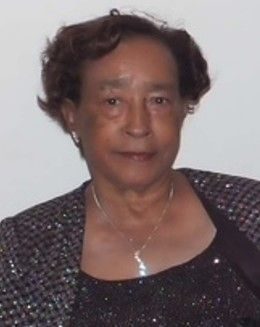‘We Stand United Puppetry Group’ preserves African-American tradition through Kwanzaa celebration
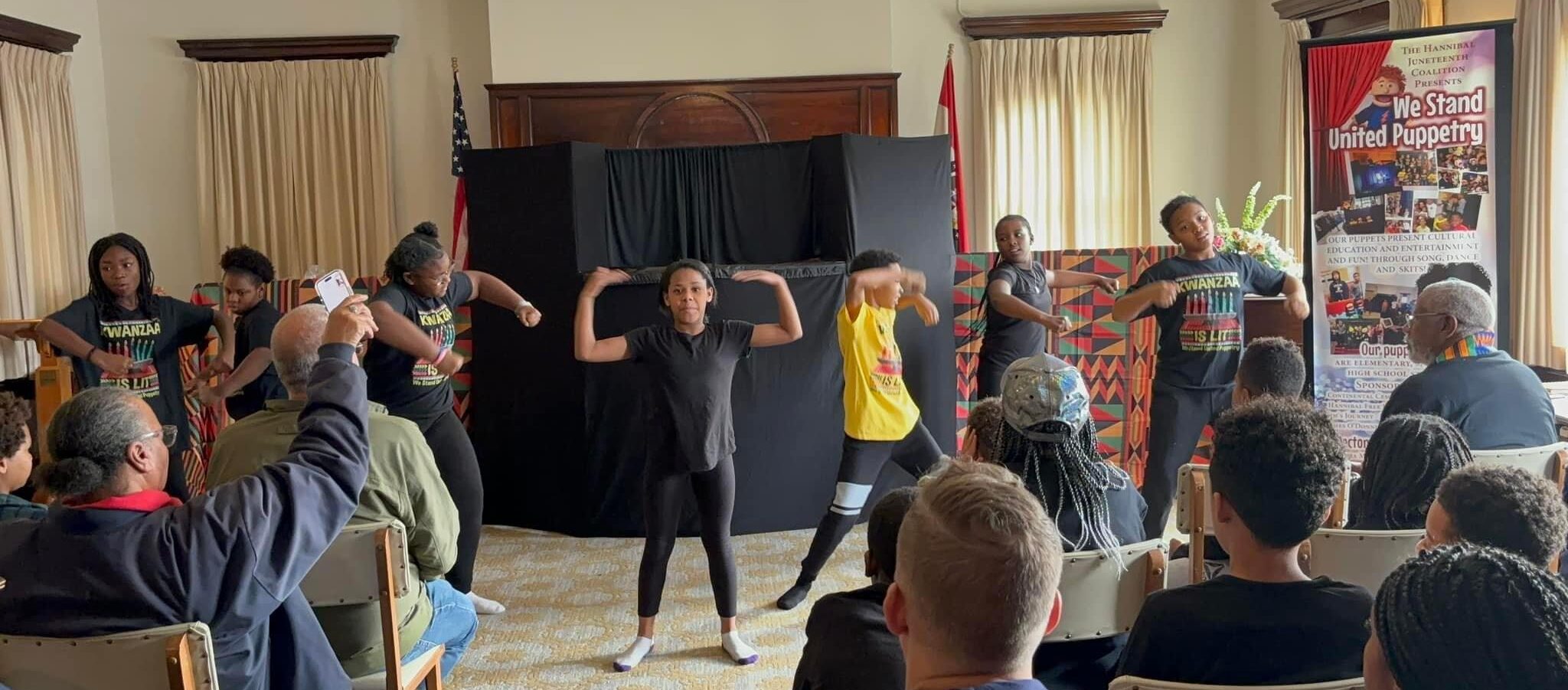
HANNIBAL, Mo.— Thursday was the fourth day of Kwanzaa, an annual seven-day celebration of the history and customs of African American culture.
Kwanzaa is a Swahili word meaning “first fruit” and each day of Kwanzaa—celebrated from Dec. 26 to Jan 1–is assigned a specific principle.
Thursday’s principle, Purpose, set the tone that afternoon at the Hannibal Free Public Library where children and adults gathered to learn the meaning and origin of the holiday.
Presented by Marsha Mayfield and the We Stand United Puppetry Group and sponsored by Missouri Tourism and the Hannibal Juneteenth Coalition, the story of Kwanzaa was told through puppetry, dance, and storytelling at the Hannibal Free Public Library.
Storyteller W.T. Johnson, the first speaker, explained the principle of the day.
“There is a purpose for me being here, and that purpose gives me the opportunity to reflect on the past, the present and the future of myself, my family, and our ancestors.
“My other purpose being that we want to learn from others about our ancestry, our history and our stories.
“Our third and final purpose for this gathering and this Kwanzaa celebration is that we want to gain knowledge and application of the seven principles of Kwanzaa as they apply and play out in our own lives,” he said.
The seven principles—which are named in Swahili then identified in English—were outlined through the song Kwanzaa Slide and performed by the United We Stand dancers.
- Umoja (Unity)
- Kujichagulia (Self-Determination)
- Ujima (Collective Work and Responsibility)
- Ujamaa (Cooperative Economics)
- Nia (Purpose)
- Kuumba (Creativity)
- Imani (Faith)
Johnson read an excerpt from the children’s book by Nikkolas Smith titled The 1619 Project: Born on the Water.
“Perhaps your grandmother told you, or my grandmother, or somebody’s grandmother but you were told these things.
“They say our people were falling on the water but our people had a home, a place, a land before they were sold 400 years ago in 1619.
“Our ancestors were taken here on a ship called the White Lion a whole year before the Mayflower arrived.
“But before that dreadful voyage there was a time when they did not pray for freedom. That was a time when they did not sing about overcoming. Their story does not begin with whips and chains.
“That was a time when they did not sing about overcoming. Their story does not begin with whips and chains. They had a home, they had a place, and they had a land. They had a beginning. This story is our story.
“Before they were enslaved they were free. They had a language. Our ancestries had hands and a mind that were knowing. Our ancestries had tradition and history. Those things were stolen and lost, but we as a people have determination, imagination, and faith.
“But most of all we will survive because we have each other.”
Johnson then introduced a special guest—who Johnson played the part of—as Ronald McKinley Everett. Everett was later known by his Swahili name, Maulana Karenga, which means “master teacher” and “keeper of the tradition”
Karenga, who was born in 1941, developed the Nguzo Saba (Seven Principles) through his knowledge of African American culture and languages as a key value system for Black life and struggles. He founded Kwanzaa in 1966.
He was the seventh son of 14 children, and his father was a tenant farmer and a baptist minister. Johnson, as Karenga, told the story of his childhood.
“We didn’t own anything but worked for other farmers and other land holders for a portion or share of the crop. Not only did
Father himself do that, but he involved all of his children in the process. So in other words, he farmed us out.
“Yes, where we worked together as a family and as a tenant under the sharecroppers agreement, meaning that when a farmer brought in 10 bushels they gave us money. When he slaughtered three hogs, they gave us half a hog.”
He said Kwanzaa is not meant to be a religious ceremony like Christmas or Hanukkah, but is time to reflect and celebrate over the past as we work together for these times and light the candle on the Kinara or fly the Bendera, our flag—the red, the black and the green,
He explained that the red represents “the blood of our people, the black represents the faces of our people, and the green represents the boundless and hopefulness that we have.
“It’s a time for us to listen to the stories and wear African clothing, eat good food, make gifts and celebrate our heritage,” he said.
“Our ancestors were a proud, free, and beautiful group of people. When they were transported as enslaved people so many of our traditions and history were lost. New traditions and new stories began and they were created on that journey across the water,” he said.
The second storyteller, Angela Williams, reminded the group of the importance of preserving traditions and stories as she vividly told the tale of a villager who became a storyteller.
“There’s a saying to this day in that village that yams will fill the memory. And money will fill your pockets. Oh but stories! They will fill your heart and your soul,” she said.
She also spoke of the importance of passing down generational stories.
“Everything you do for these children matters. That’s what this is about. Pass it on to the next generation, so when they come up that our traditions will not fall on deaf ears. That we will continue to grow in love and support of one another.”
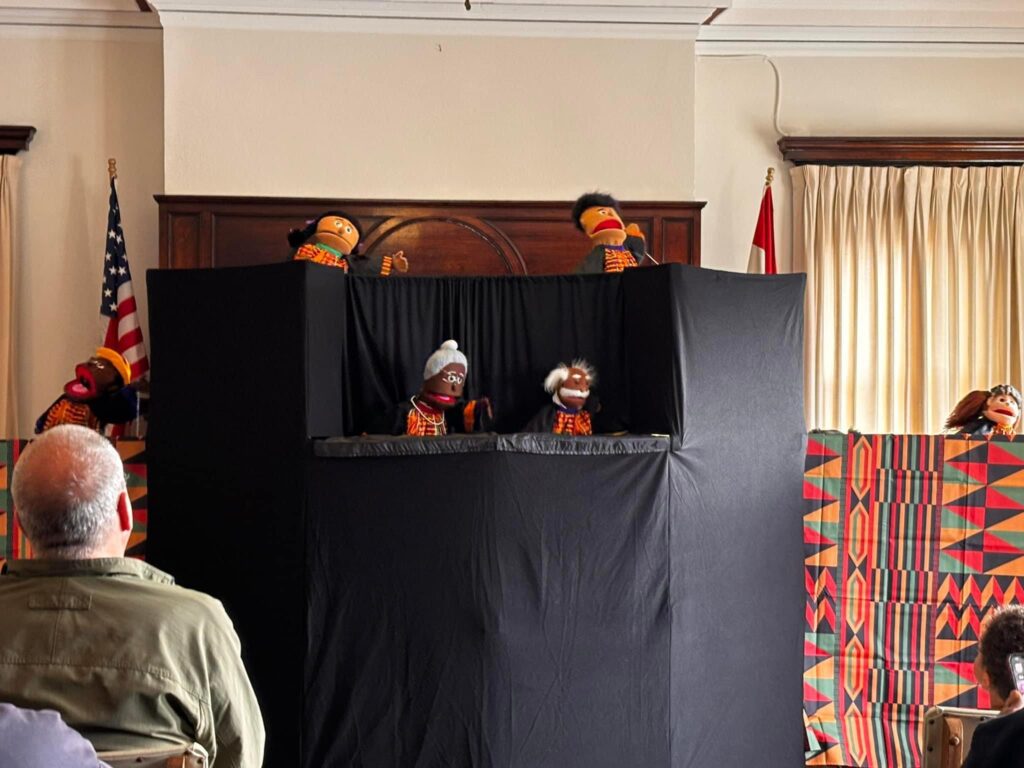
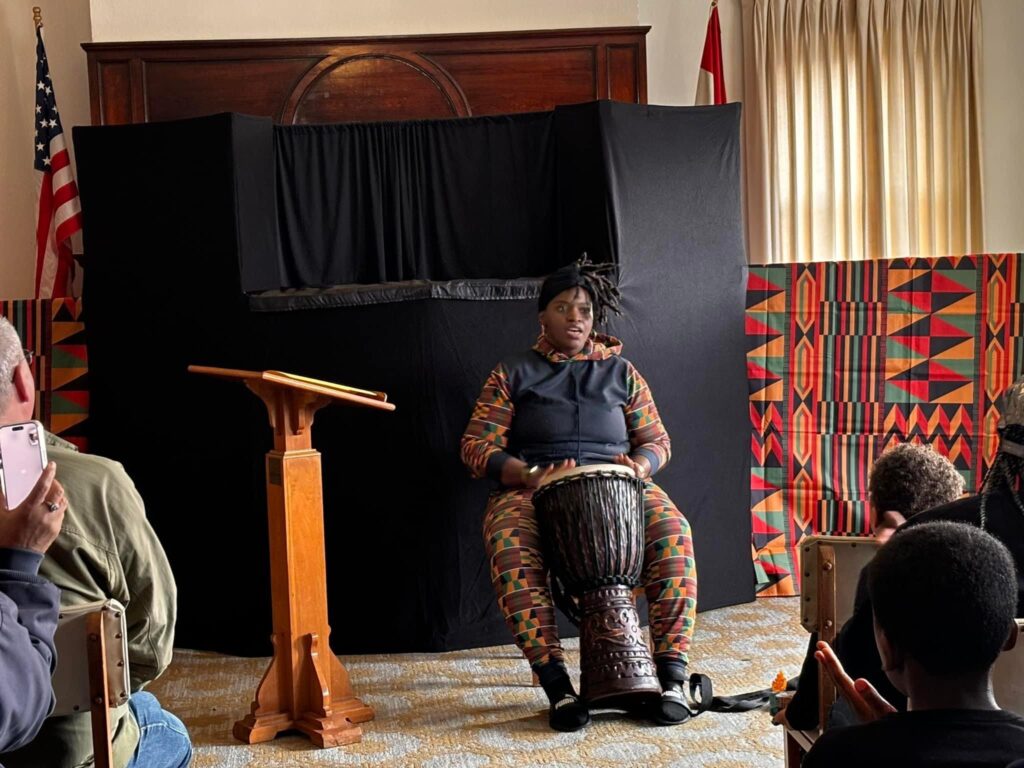
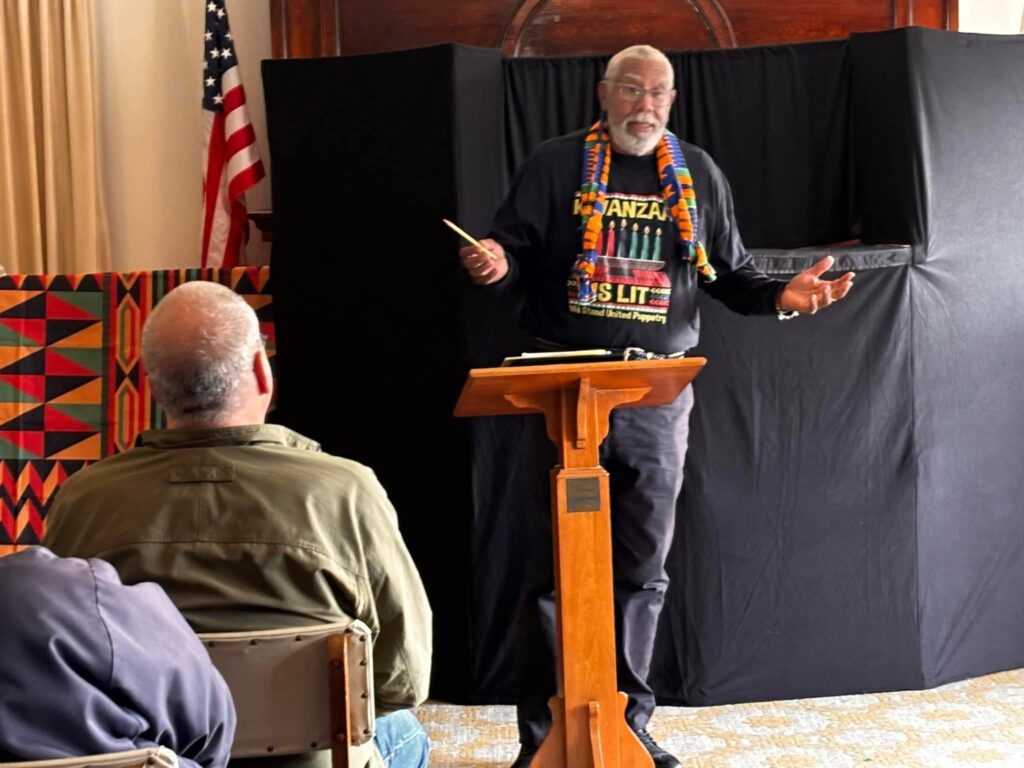
Miss Clipping Out Stories to Save for Later?
Click the Purchase Story button below to order a print of this story. We will print it for you on matte photo paper to keep forever.

